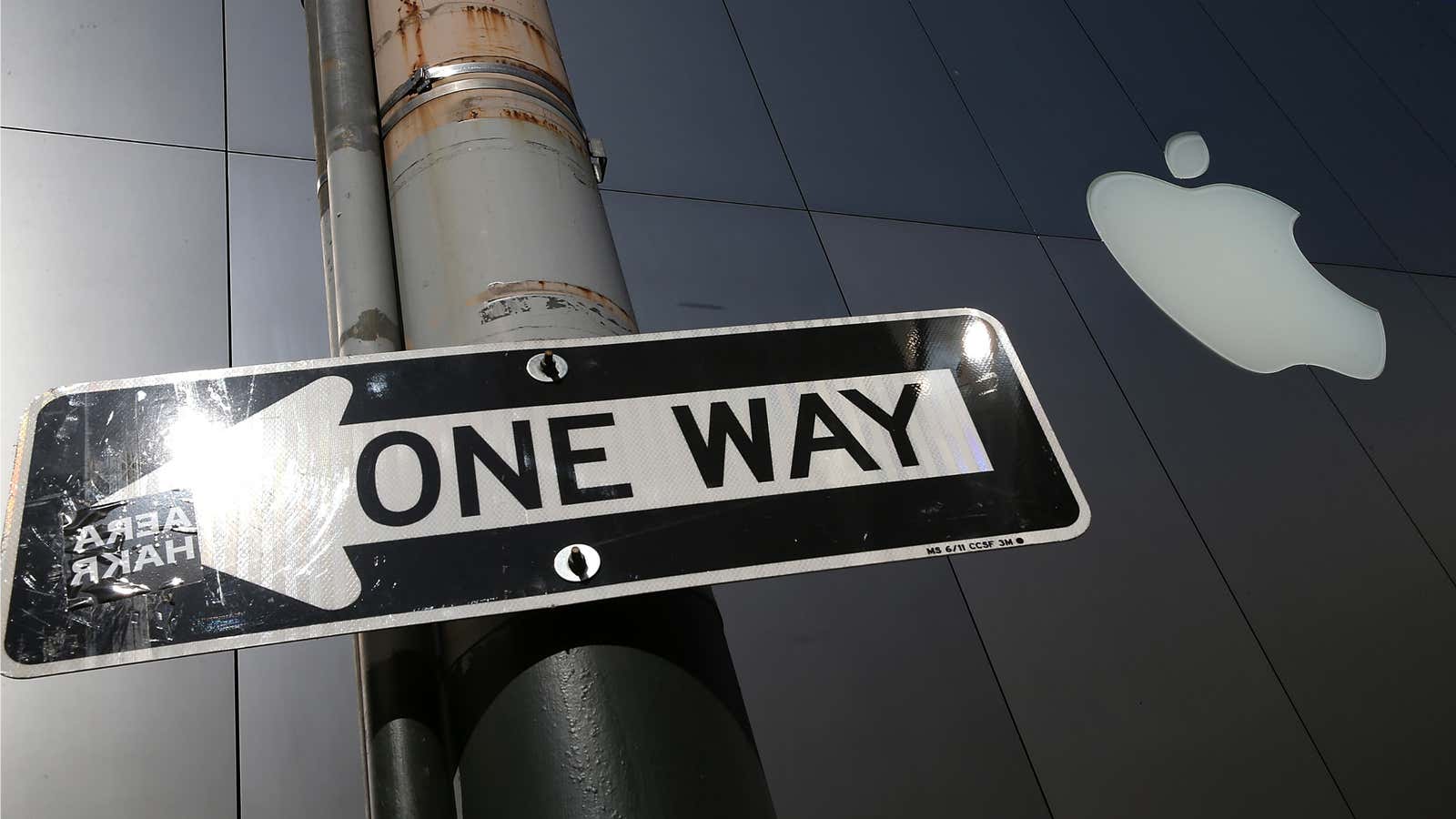It’s often said that stock prices are a forward-looking indicator of economic activity. But that hasn’t been the case lately when it comes to Apple’s share price and volatile equity values.
The problem is that Apple shares are a lazy investor’s bellwether for the massive growth of the mobile economy. Thus, Apple has become a backward-looking proxy. Equity buyers who thought that they could play the global smartphone revolution by simply owning Apple stock themselves need to get smarter about how to get exposure to the mobile ecosystem, which is growing too fast and has become too large for any single company to represent the entire “megatrend.”
As is the case with any winning trading strategy, the idea of owning Apple as a leading stock had its roots in genuine performance—for a time. Until as recently as a few quarters ago, the strategy was working: investors enjoyed the gains as Apple surged to more than $700 from the pre-smartphone double digits as the company enjoyed massive profits that followed from such innovations as the iPod, the iPad and the iPhone, the first global smartphone.
But this week’s Apple earnings report, in which the company posted its first profit decline in a decade despite selling almost 10 million more iPhones and iPadslast quarter than a year ago, is a reminder that all simplistic trading strategies come to an end. The company has told investors it is going to raise debt for the first time in its history—with bond-rating agency Moody’s saying the paper will not get a triple-A rating because of the volatility of the consumer-electronics sector. Apple currently trades at around $400 a share, a bit more than half its recent high, despite share buybacks and a richer dividend.
Now, investors who thought that they could play the global smartphone revolution by simply owning Apple stock have to find some other “proxies” and perhaps own a basket of players, or even an ETF or index fund that widens their exposure. They might want to consider some big public companies that broaden such exposure including Google, Samsung and Qualcomm, to name just a few.
No one should doubt the global mobile revolution is gaining pace. This week’s StrictlyMobile Conference in Silicon Valley, hosted by mobile-focused venture capital firm Relay Ventures, illustrated that point. After hearing of massive demand growth from such entrepreneurs as Khan Academy founder Sal Khan and senior leaders from LinkedIn, Evernote and Oracle, the theme of the conference was hammered home by Google mobile sales and strategy leader Jason Spero, who told the attendees that mobile isn’t simply a “form factor”—it is a context that informs almost everything that happens in the economy.
That’s increasingly true. But it is also true that any phenomenon as big as mobile needs more than one company to symbolize it. And this week has shown that Apple’s era as that symbol is behind us.
